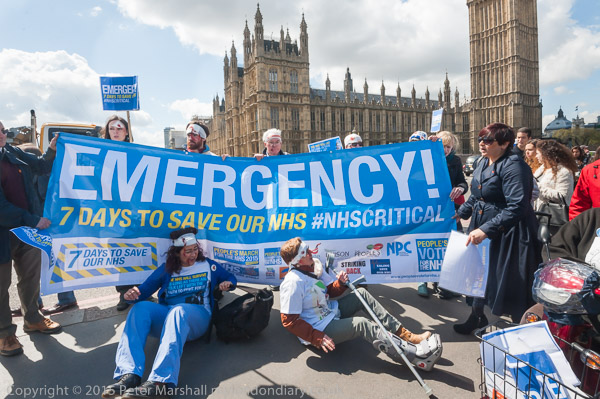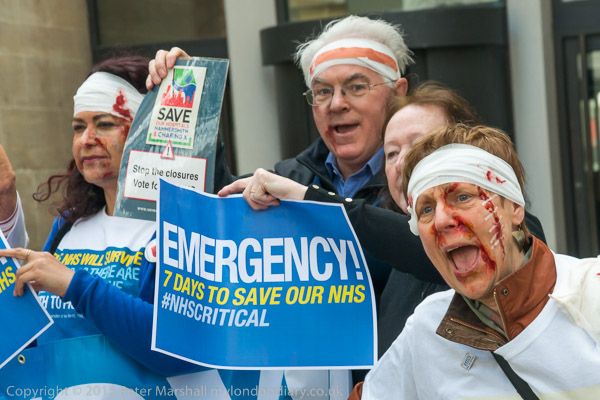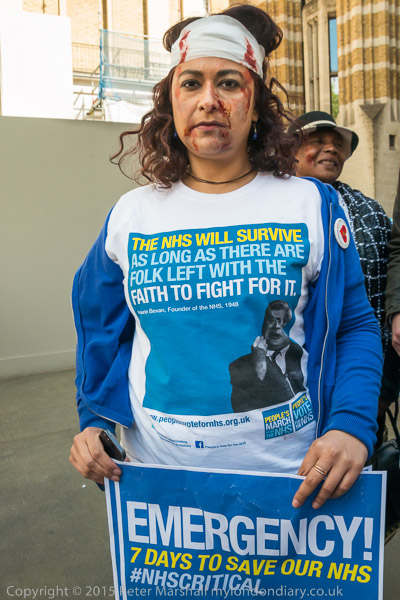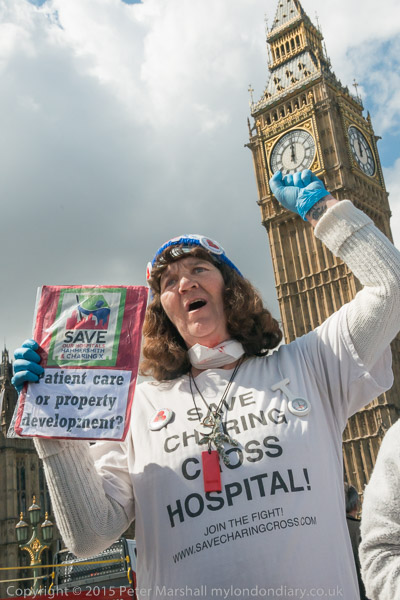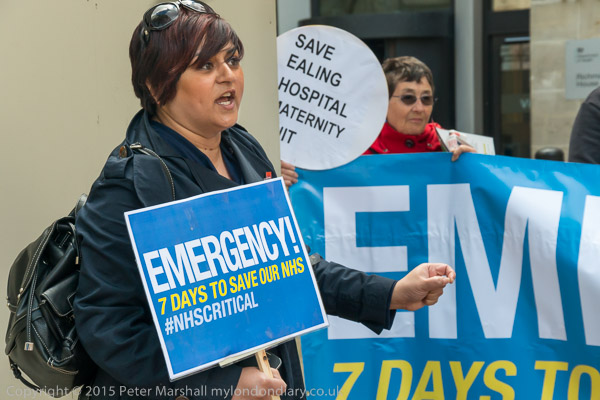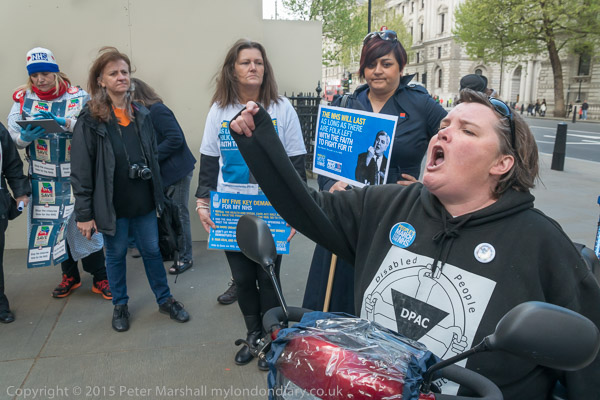The Iraq War Fat Cat Tour: On Saturday 4th September 2004 I met campaigners from organisations including Voices in the Wilderness UK, a group opposed to the sanctions on Iraq and the war in Iraq, which between March 1996 and May 2003 had sent over 70 sanction-breaking delegations to Iraq.
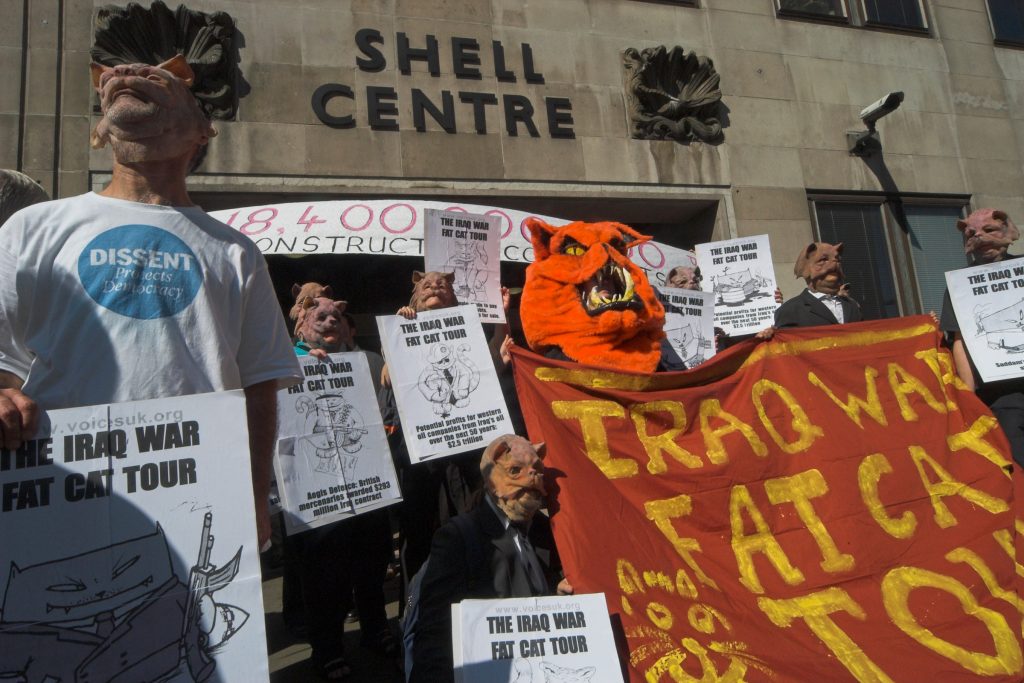
I had photographed many of the protests leading up to the illegal invasion of Iraq in 2003 – and there are pictures and accounts from some of these on My London Diary, and of the protests after the invasion, particularly when it became clear that Tony Blair had deliberately misled Parliament and the facts about the “dodgy dossier” became clear. Many called for Blair to be indicted as a war criminal.
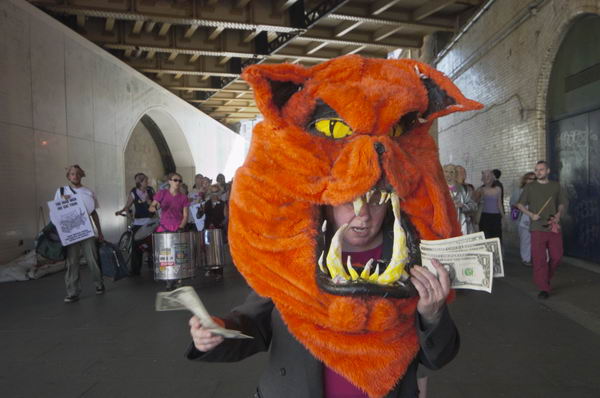
Despite the huge protests and determined opposition of a huge proportion of the British people to the war, we failed to stop our army supporting the US, and many thought the protest movement had deliberately failed to press home its position – as Tony Benn and others had urged – thanks to the domination of its leadership by members of the SWP. Let’s hope that “Your Party” does not get sunk by the same hands – or by the efforts of those close advisers to Jeremy Corbyn when he was Labour leader.
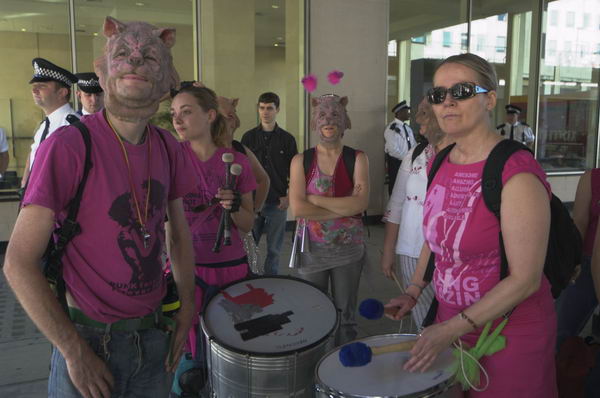
If anyone needs reminding about what happened in Iraq you can see a brief time-line “What happened when Iraq was invaded 20 years ago?” on Al Jazeera.
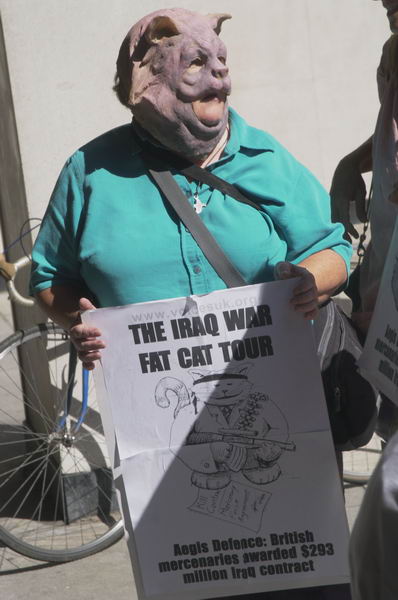
I only wrote a short piece about the protest back in 2004, now rather hard to find on that web site, so here it is, with a few of the pictures from it in this post and there are more here on My London Diary.
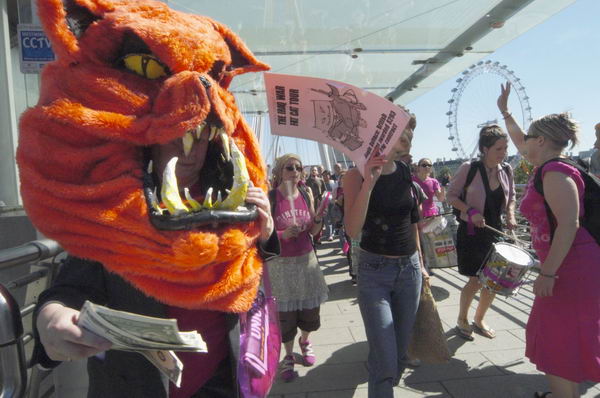
After the initial military victory in Iraq, the American government were determined that their friends would profit from the situation. Lucrative contracts went largely to US companies that just happened to have friends and beneficiaries in the top level in the USA. Capitalism is always a winner from wars, with arms suppliers laughing all the way to the bank, but this extended the gravy train rather more widely and rather too obviously. Bush’s cronies sell the arms that knock the infrastructure to pieces, then get high margin contracts to rebuild.
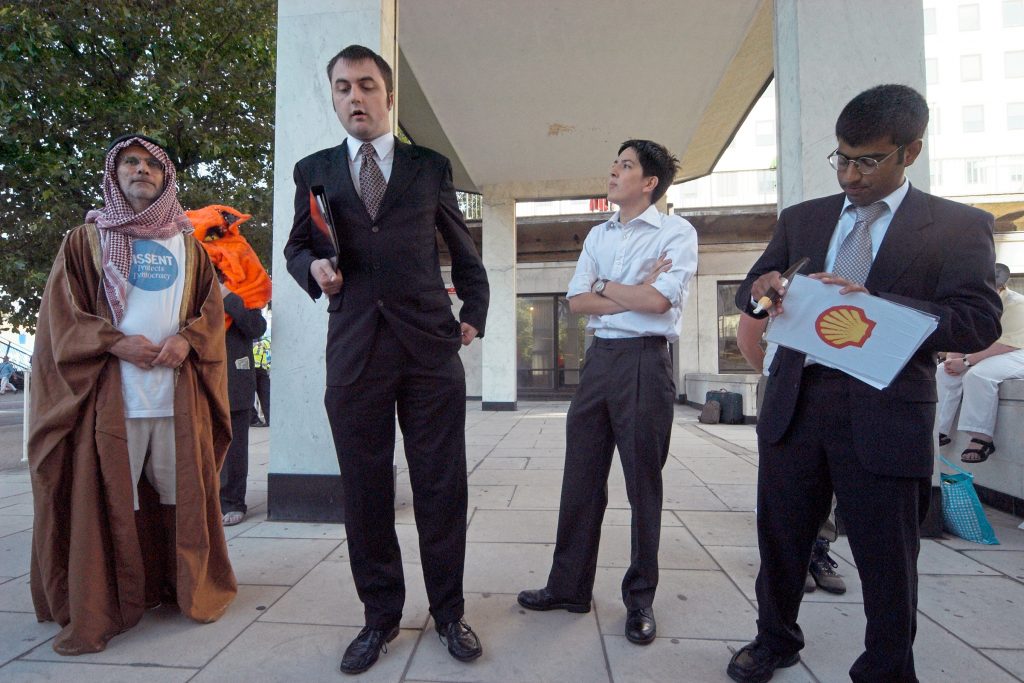
The Iraq War Fat Cat Tour of London aimed to visit some key sites to point out the profiteering from the occupation of Iraq. it started at the Shell Centre (Western oil companies look set to make $2.5 trillion from Iraqi oil over the next 50 years), then made its way across the new Hungerford Bridge to the Cavell statue at the north east of Trafalgar Square (where I left it) and continuing to some other key sites.
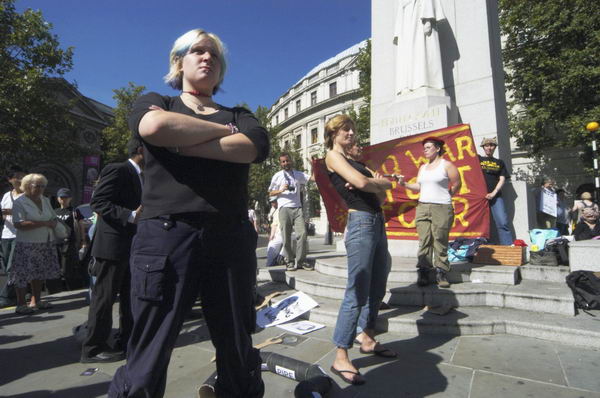
There was singing from the Strawberry Theives Socialist Choir (the name a reference to a William Morris wallpaper design), who thoughtfully provided the words for the Internationale in case any of us had momentarily forgotten them, (Arise! ye starvelings from your slumbers, Arise! ye criminals of want… ), samba playing from Rhythms Of Resistance, and a couple of street theatre groups.
Flickr – Facebook – My London Diary – Hull Photos – Lea Valley – Paris
London’s Industrial Heritage – London Photos
All photographs on this page are copyright © Peter Marshall.
Contact me to buy prints or licence to reproduce.
